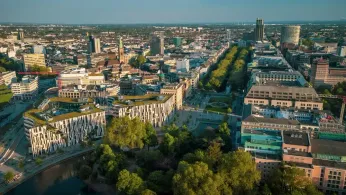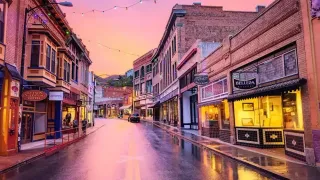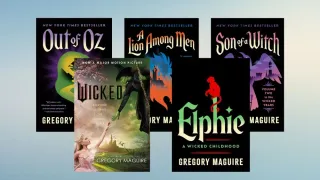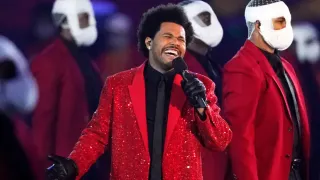
7 hours ago
Queer Renaissance by the Rhine: Discovering Düsseldorf’s Hidden LGBTQ+ Scene
READ TIME: 3 MIN.
Tucked between the more famous party capitals of Cologne and Berlin, Düsseldorf has long flown under the radar for queer travelers. Yet, as you step off the train and into the city’s modern Hauptbahnhof, it’s clear that Düsseldorf is not just a stopover, but a destination in its own right—one embracing queer visitors with a blend of German efficiency and Rhineland warmth. The rainbow flags fluttering outside indie bars in the Flingern district and the inclusive signage at local museums signal a city quietly but confidently growing into its queer identity.
Düsseldorf’s reputation as a creative powerhouse is well-earned. The Kunstakademie Düsseldorf, alma mater of artists like Joseph Beuys and Gerhard Richter, lends the city a progressive edge, and its impact is visible everywhere. From the vivid street art in Bilk to the avant-garde installations at K21 Museum, the arts scene here is both world-class and deeply inclusive. The city regularly hosts exhibitions that center queer voices and challenge heteronormative narratives, such as the annual “Queer Art Düsseldorf” showcase, which partnered with local LGBTQ+ groups to spotlight emerging trans and non-binary artists in 2025 .
Music, too, pulses with inclusivity. Elektro, Düsseldorf’s signature electronic music festival, featured an official queer stage for the first time this year, curated by @QueerBeatCollective—a platform for LGBTQ+ DJs and performers. The event drew hundreds of locals and visitors together, creating a safe, celebratory space that echoed across the city’s riverside parks .
Unlike the throngs of Cologne’s colossal Christopher Street Day, Düsseldorf’s CSD is smaller and more grassroots—but its spirit is just as fierce. In June 2025, over 8,000 people marched through the city center, led by a coalition of queer youth, drag artists, and transgender activists. The event emphasized intersectionality, with workshops on anti-racism in the queer community and panels highlighting the experiences of BIPOC and disabled LGBTQ+ people .
The city’s queer nightlife is cozy yet vibrant. “Queerfeld,” a monthly pop-up party in a repurposed tram depot, is renowned for its all-gender-welcome policy and lineups featuring drag kings, alternative cabaret, and lesbian DJs. At “Rubicon,” Düsseldorf’s longest-running queer bar, regulars gather for open-mic poetry nights and vintage vinyl evenings. These venues are more than nightlife—they’re community hubs where locals offer newcomers tips on everything from the best Turkish brunch in Oberbilk to activist meet-ups at the queer library “Bücherbunt” .
Düsseldorf’s appeal for queer travelers lies not only in its events but in the city’s everyday inclusivity. The city council has installed gender-neutral bathrooms in all public buildings since 2024, and local hotels display visible LGBTQ+ allyship through staff training and partnerships with community groups . The queer-run “Café Rosa” is a favorite brunch spot for both locals and visitors, hosting weekly support groups for transgender people and offering a free lending library of LGBTQ+ literature.
The city’s “Queer Refugee Support” network, founded by local activists, has been recognized for its work in helping LGBTQ+ asylum seekers find housing and legal aid—a testament to Düsseldorf’s intersectional approach .
Düsseldorf’s diversity is striking. Its Little Tokyo enclave, the largest Japanese community in Germany, regularly collaborates with queer organizations for cultural festivals, blending drag performances with sushi-making workshops and anime screenings. The annual “Rheinkirmes” fair, a citywide celebration on the banks of the Rhine, now features a “Pride Day” with dedicated queer spaces and family-friendly drag shows, drawing a visibly mixed crowd from across the region .
For those seeking quieter moments, the leafy Nordpark and the riverside promenade offer places for reflection, picnics, and impromptu queer meet-ups. Local guides from @DusseldorfQueerTours lead walking tours focusing on hidden queer history, from the secret gay bars of the 1920s to contemporary activist landmarks.
Düsseldorf’s charm lies in its balance: it offers a cosmopolitan cultural scene without the overcrowding of more famous queer capitals, and its grassroots community ensures a sense of belonging even for solo travelers. While it may not yet top international LGBTQ+ travel lists, the city’s open-minded spirit, intersectional activism, and vibrant everyday culture make it a haven for queer explorers seeking something authentic and new .
Whether you’re wandering the art-filled streets of Flingern, sipping coffee after sunrise along the Rhine, or marching alongside activists during CSD, Düsseldorf offers a model of how smaller cities can cultivate spaces where all queer identities are affirmed, celebrated, and woven into the city’s creative life.






